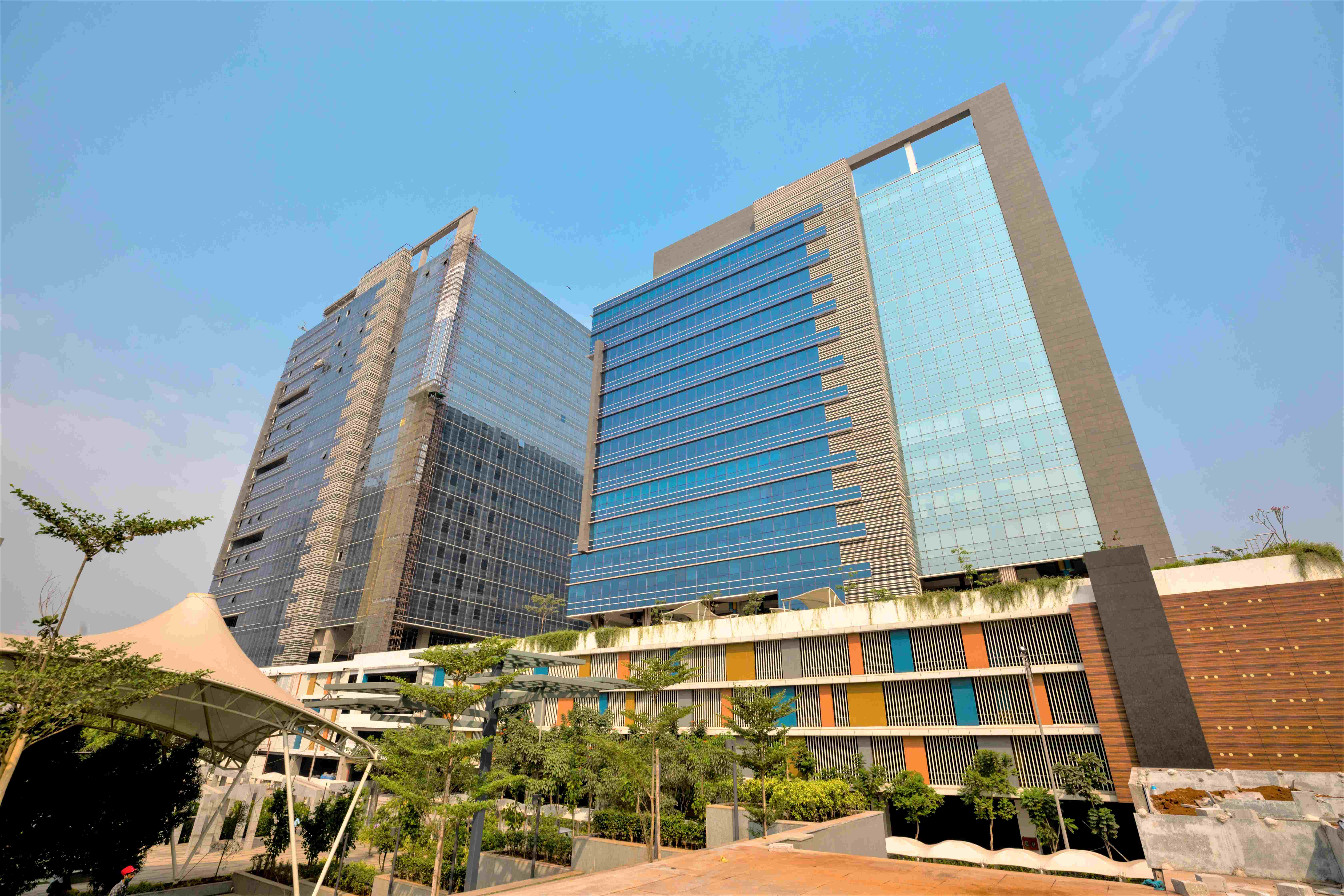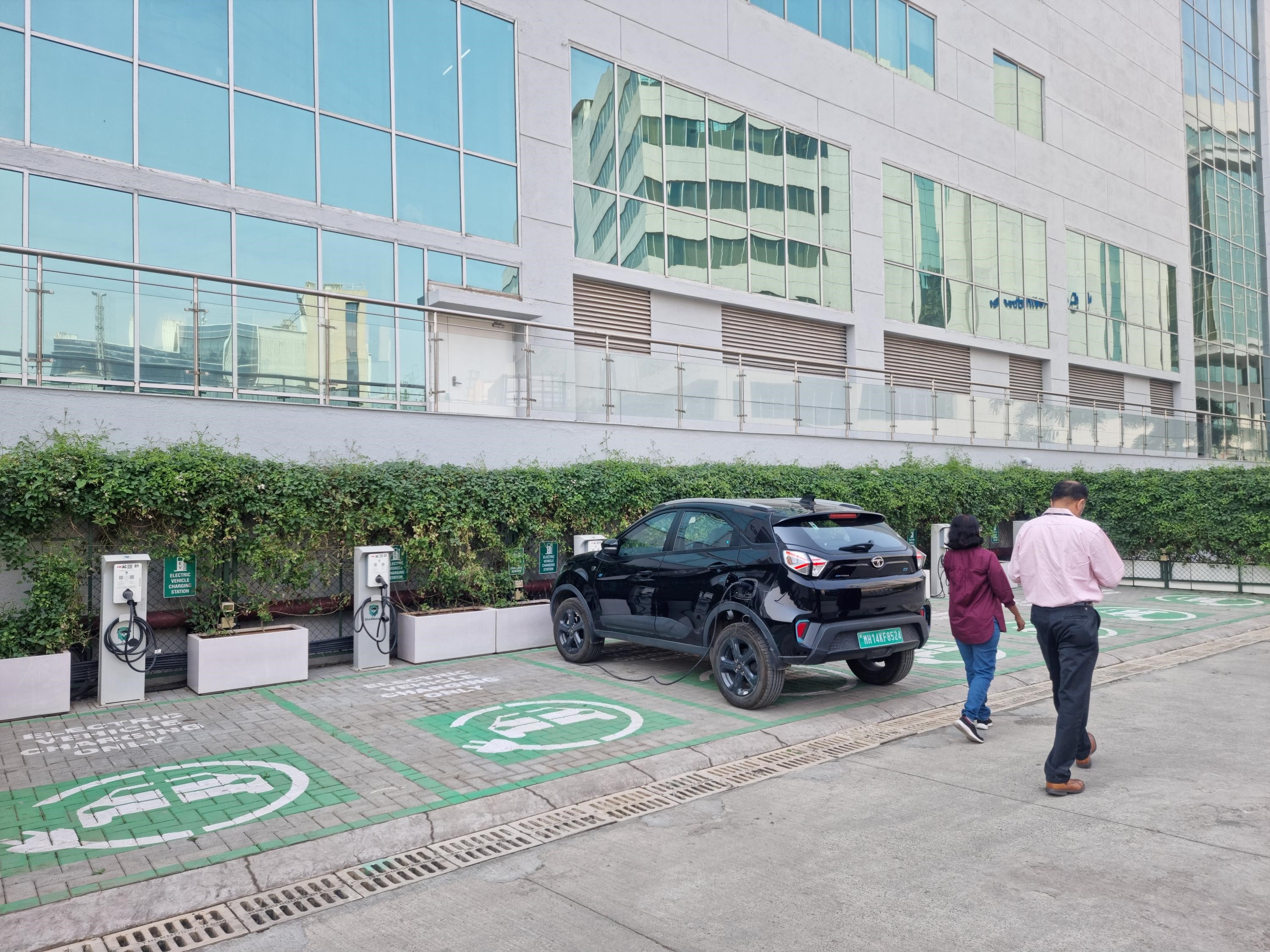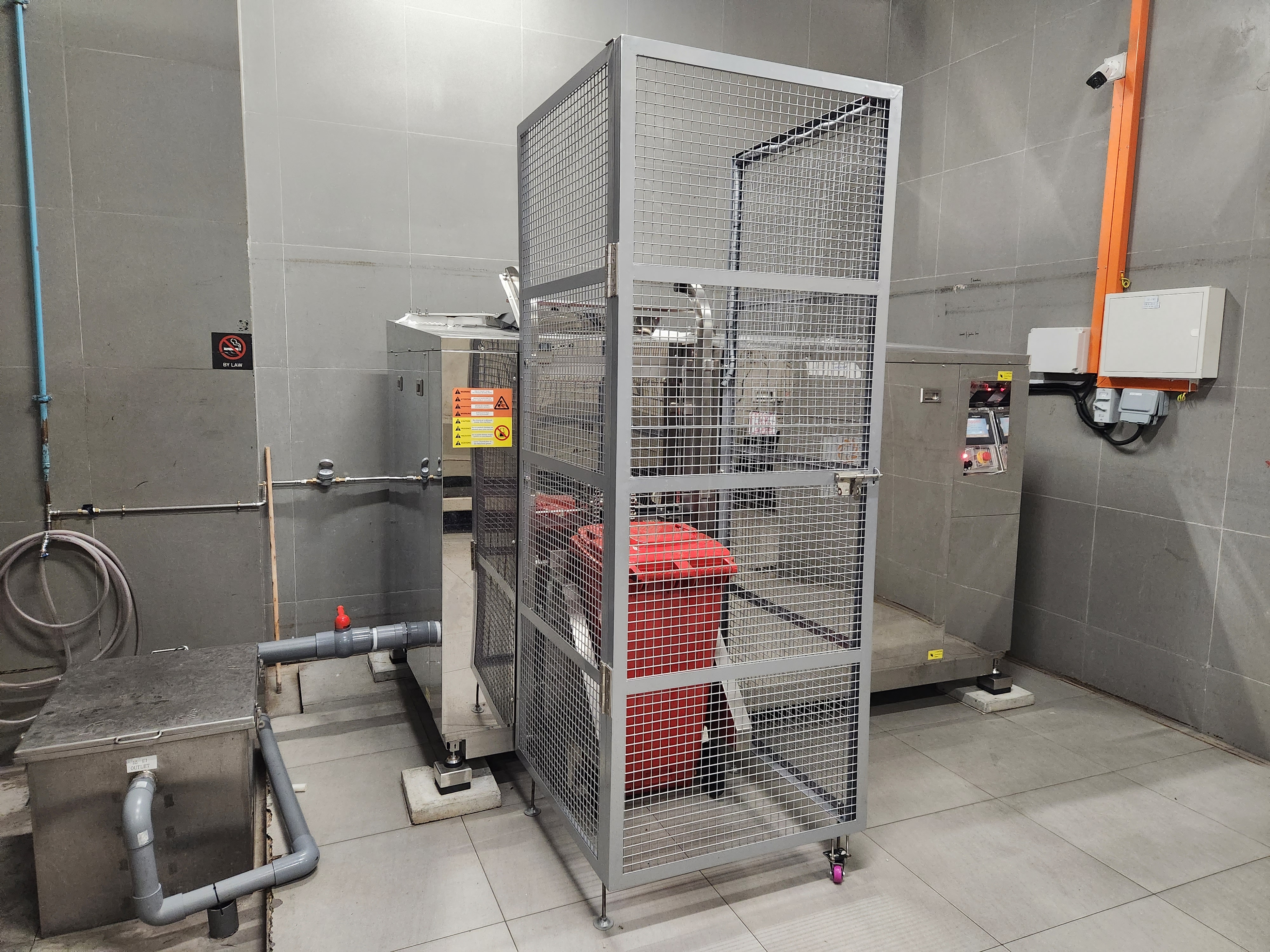Green Opportunities from Retrofitting Existing Buildings - India
Six buildings across four business parks, with a total gross floor area of more than 230,000 sqm, elevated their existing building ratings after various AEIs. Buildings in Aurum Q Parc and International Tech Park Hyderabad obtained the US Green Building Council LEED Platinum rating, and buildings in International Tech Park Bangalore (ITPB) and International Tech Park Chennai (ITPC) obtained IGBC Platinum rating.
Approximately 1,245,000 kWh of energy savings per year will potentially be achieved by the above mentioned business parks through energy efficiency initiatives implemented in 2022 that includes an innovative district cooling network1, intelligent building management systems that allow for advanced HVAC control logics such as demand-based ventilation, energy-conserving air-handling unit (AHU), pressure independent control valves and magnetic bearing chillers.


International Tech Park Chennai


Aurum Q Parc
Electricity for the business parks is generated onsite as well as procured from offsite renewable sources. ITPB’s rooftop solar PV and offsite renewable energy provided for over 90% of its total annual energy consumption.
Installation of water efficient fixtures estimated to reduce 24,000m3 of water consumption across four buildings in ITPB and ITPC. Approximately 40-50% of rainwater was harvested either for recharging ground water or for further use across the buildings. 100% of wastewater generated continues to be treated onsite.
In ITPB, a first of its kind, fully-automated waste segregation system called “Trash Bot” was implemented to segregate waste into biodegradable and non-biodegradable for recycling. Biodegradable waste is further processed in an organic waste converter into compost for landscaping while non-biodegradable waste is collected by external certified vendors and recycled.


1 For more details, refer to the section on Enhancing Operational Efficiency Through Innovative Reconfiguration of Chiller Systems in the CapitaLand Investment Global Sustainability Report 2022.
You may also be interested in
-

-
Case Study: Supporting Low-Carbon Transportation
-

-
Case Study: Promoting Waste Recycling Through Multiple Initiatives in Singapore